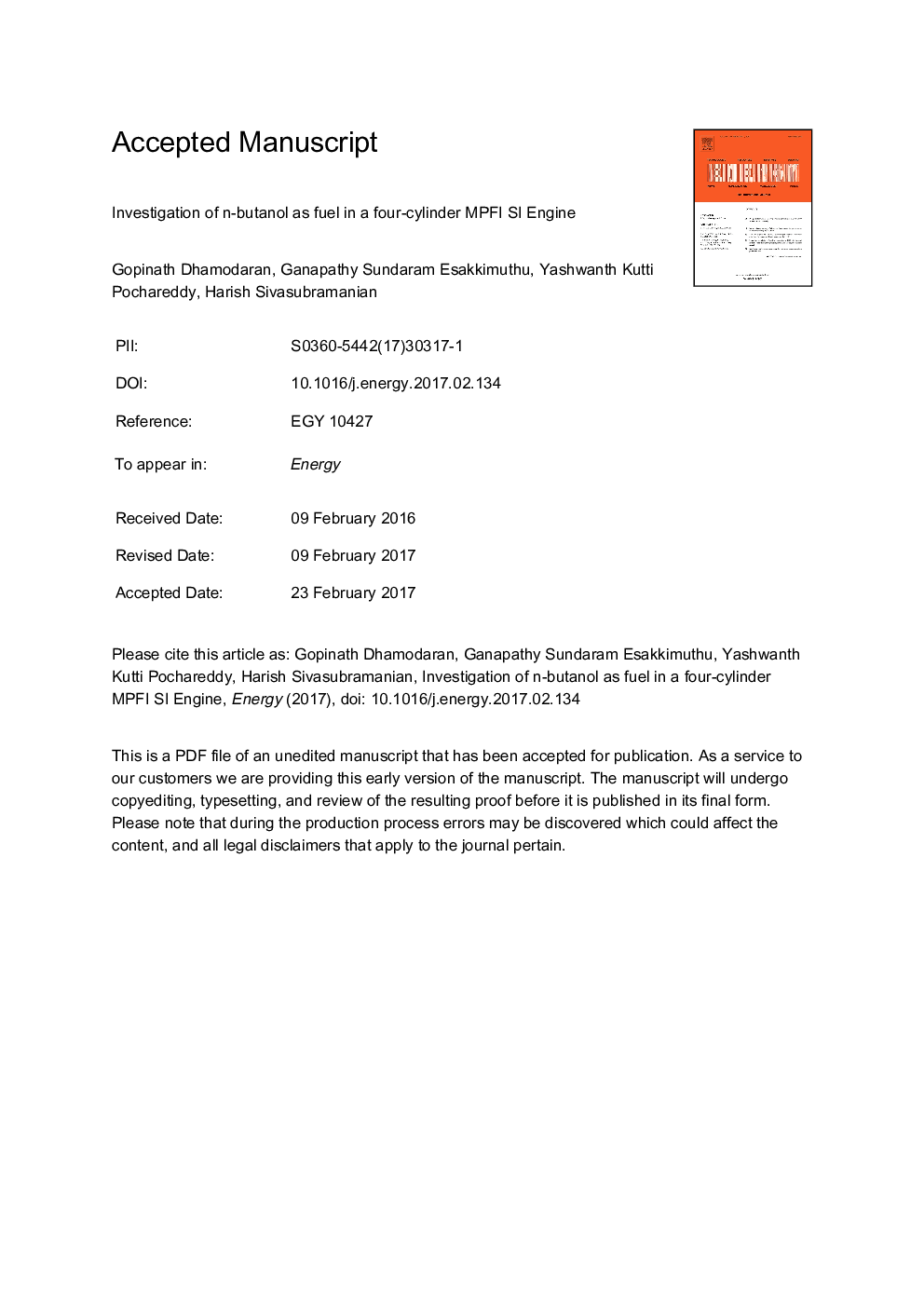| Article ID | Journal | Published Year | Pages | File Type |
|---|---|---|---|---|
| 5476518 | Energy | 2017 | 25 Pages |
Abstract
Global concern over rising greenhouse gas emission levels and the availability of fossil fuels has led to the development of biofuels, and the use of gasoline formulations with oxygenated compounds has become common practice for improving fuel quality. This empirical study evaluated the effects of oxygenated gasoline fuel blends on air quality. Tests were conducted on a four-stroke, four-cylinder multi-point fuel injection (MPFI) spark ignition (SI) engine using an eddy current dynamometer to investigate the combustion and emissions behaviour of n-butanol blends. Blends comprising n-butanol (N10, N20, and N30) and unleaded gasoline were tested over a rotational speed range of 1400Â rpm-2800Â rpm under a constant load of 20 Nm. The results obtained indicate that use of n-butanol blends produced lower hydrocarbon (HC) and carbon monoxide (CO) levels than unleaded gasoline but nitrogen oxide (NOx) emissions were found to be higher. When ignition timing was retarded, NOx emissions for all n-butanol blends decreased. The peak in-cylinder pressures and heat release rates for the blends were also found to be higher than for unleaded gasoline (UG). COVIMEP of gasoline was higher than that of n-butanol/gasoline blends.
Related Topics
Physical Sciences and Engineering
Energy
Energy (General)
Authors
Gopinath Dhamodaran, Ganapathy Sundaram Esakkimuthu, Yashwanth Kutti Pochareddy, Harish Sivasubramanian,
